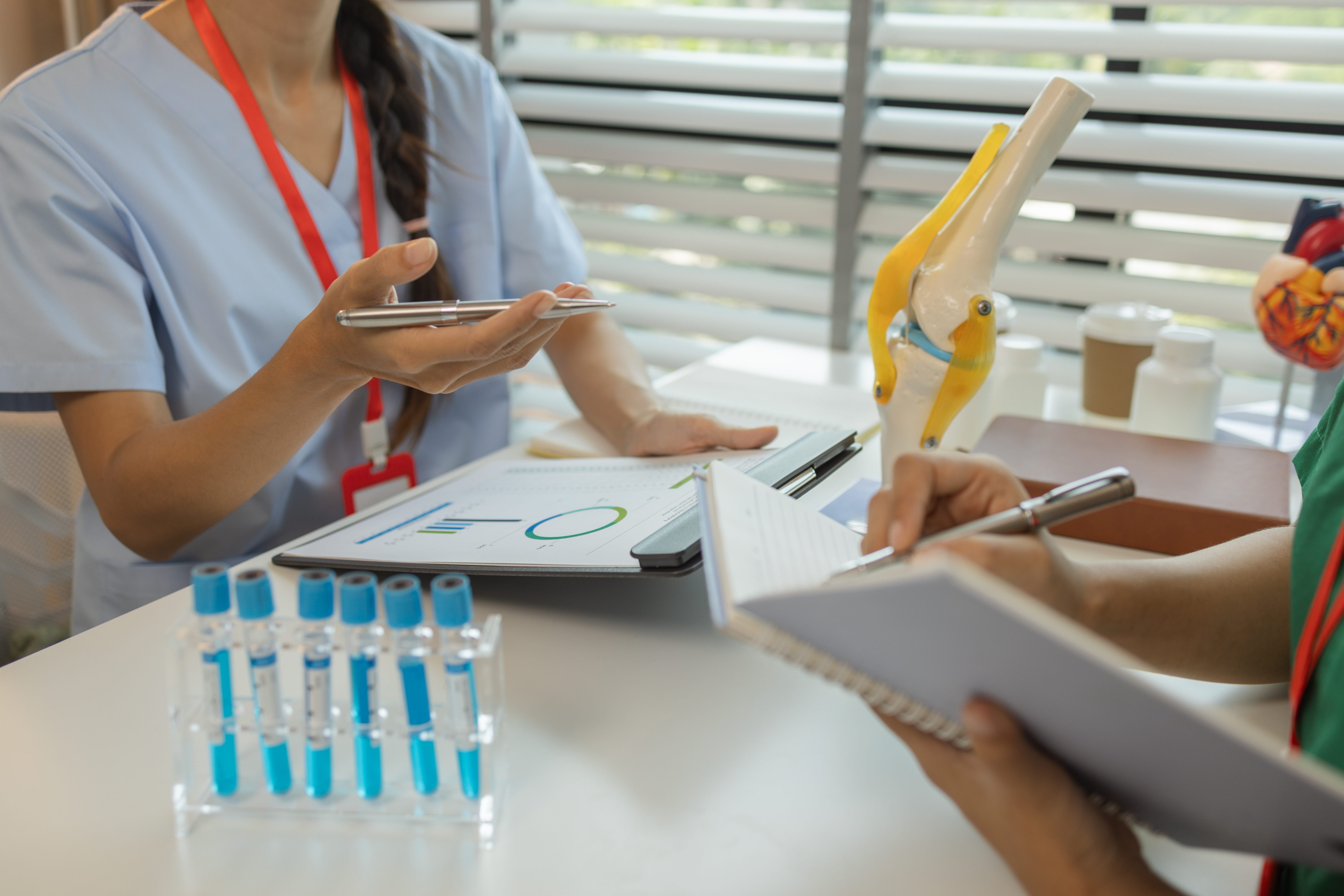I've spent years immersed in the genAI revolution in healthcare and, let me tell you, it's not about incremental tweaks. It's a seismic shift — a fundamental redefinition of what it means to be a healthcare expert. We're discussing three game-changing, under-the-radar ways genAI is turning the tables. Forget the old rulebook; it's bonfire material.
In my case, expertise used to be about hoarding knowledge. I spent years building a mental fortress, brick by brick, becoming the go-to person for answers. But what happens when a digital brain can access and synthesize more information in seconds than I could in a hundred lifetimes? That's the reality I’m facing.
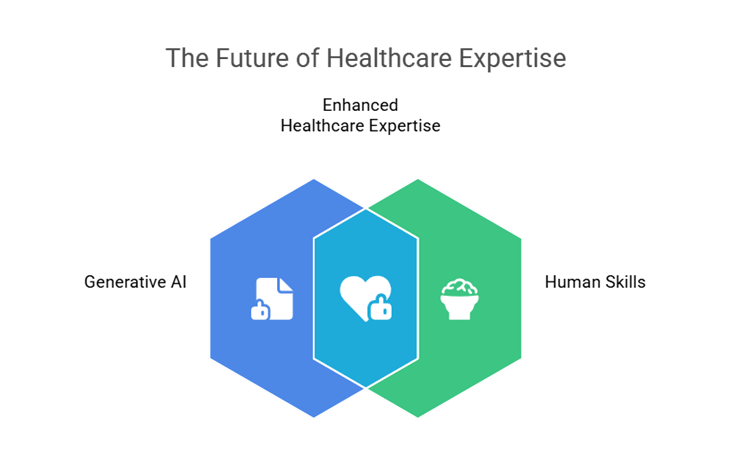
This isn't a eulogy for healthcare expertise; it's a call to arms. GenAI is blowing up the old model, and that's good news. It's forcing me to confront what truly matters: the uniquely human skills that no algorithm can replicate. This article is your roadmap to not just surviving but leading the revolution in AI-powered healthcare.
The Information Game Is Over
For years, I worshiped the altar of "information." Now, it's a commodity. Generative AI is the great leveler, making vast oceans of data instantly accessible. So what? This is huge for healthcare professionals.
Think about it: genAI can do the grunt work — sifting through mountains of research, analyzing patient data and spitting out potential diagnoses. This isn't about replacing doctors; it's about liberating them. It's about turning information gatekeepers into wisdom guides.
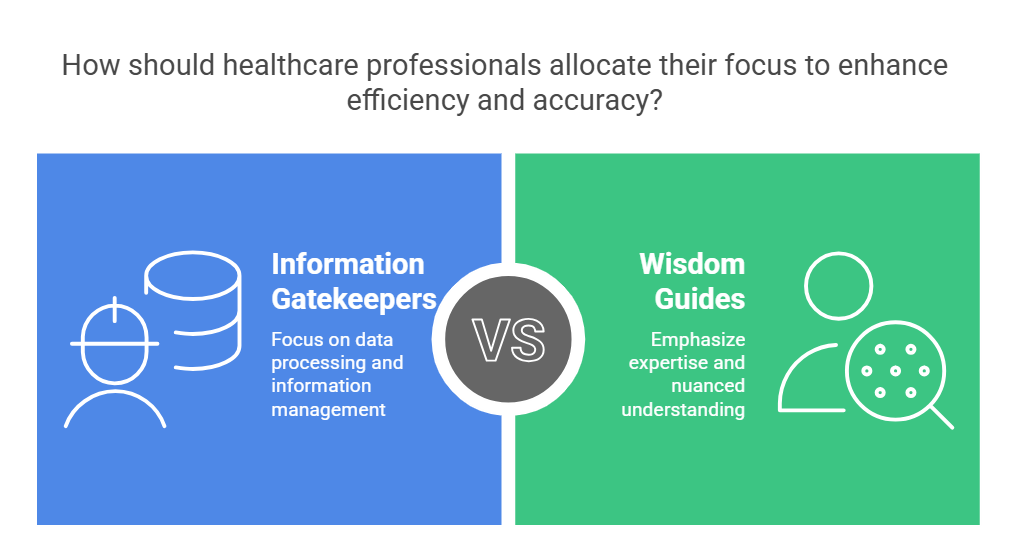
Example 1: A radiologist, instead of spending hours meticulously reviewing hundreds of MRI images, can use genAI to flag potential anomalies. This frees the radiologist to focus their expertise — their years of experience and nuanced understanding of subtle patterns — on the most critical cases, improving efficiency and, more importantly, accuracy.
Related Article: 5 Levels of AI in Healthcare: From Chatbots to Scaled Innovation
The Enduring Value of Human Skills
GenAI is a brilliant tool, but it's just that — a tool. It can't replace the messy, beautiful, complex reality of being human, and that's where the real value lies.
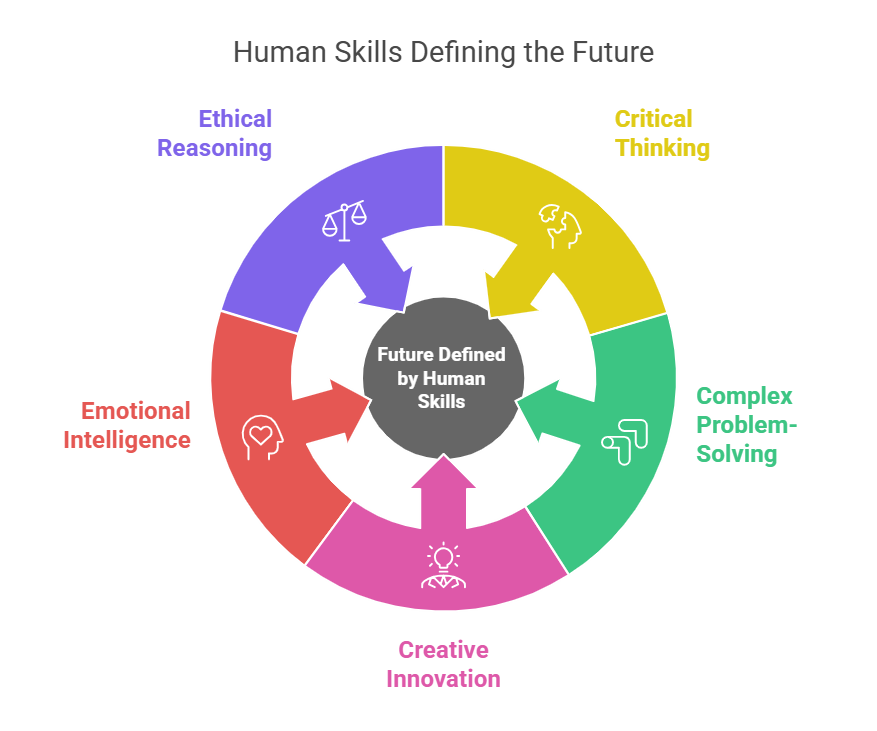
The skills that will define the future:
- Critical Thinking and Judgment (The "Gut" Check): GenAI can give you options, probabilities, data points. But it can't tell you what to do when the stakes are high, when the patient's life hangs in the balance and when the textbook answers don't apply. That's where your experience, your intuition, your humanity come in.
- Complex Problem-Solving (Wrestling With the Unknown): Healthcare is rarely neat and tidy. GenAI thrives on well-defined problems. But what about the curveballs, the medical mysteries, the cases that defy easy categorization? That's where human ingenuity, adaptability and that "aha!" moment comes into play.
Example 2 (Following Complex Problem-Solving): A patient presents with a baffling constellation of symptoms that don't fit any textbook definition. GenAI can crunch the data and generate possibilities. Still, it's the physician — with their clinical judgment, their intuition honed by years of practice, their understanding of the patient's unique story — who must chart the course.
Creative Innovation (Beyond the Algorithm): GenAI can remix existing knowledge. But true innovation — the kind that transforms patient care, discovers new treatments and rethinks the entire system — requires a spark of human creativity that no machine can match.
- Emotional Intelligence and Interpersonal Skills (The Heart of the Matter): Can an algorithm build trust? Can it offer comfort? Can it truly understand the fear, the hope, the vulnerability of a patient facing a life-altering diagnosis? Absolutely not. That's the sacred space of human connection.
- Ethical Reasoning (The Moral Compass): AI is a powerful tool, but it's morally neutral. It's up to us to guide its use, to ensure fairness, to protect patient privacy, to navigate the complex ethical dilemmas that will inevitably arise. This is a fundamental human responsibility.
Adapting to the New Landscape: Strategies for Individuals and Organizations
This isn't about tweaking your resume; it's about a mindset shift.
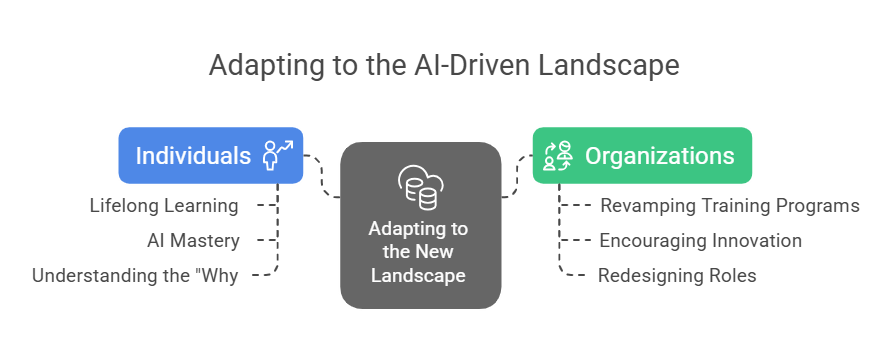
For Individuals (Become a Renaissance Professional):
- Lifelong Learning Is Non-Negotiable: The skills landscape is a moving target. Embrace continuous learning. Become a master of uniquely human skills. This isn't optional; it's survival.
- Become an AI Whisperer: Don't fear genAI; master it. Learn to use these tools to amplify your abilities, to free yourself from the drudgery of data processing and to focus on what truly matters.
- Embrace the "Why": Don't just memorize; understand. Cultivate your critical thinking, your problem-solving prowess, your ability to connect the dots. Become a master of the "why" behind the "what."
For Organizations (Rebuild from the Ground Up):
- Blow Up Your Training Programs: Rote memorization is dead. Focus on critical thinking, creativity, collaboration and ethical reasoning. Create learning experiences that simulate real-world challenges.
Example 3 (Following Training Programs Point): A forward-thinking hospital ditches the dusty lecture halls and creates an AI-powered simulation center. Doctors grapple with complex, unpredictable cases, honing their critical thinking and decision-making skills in a safe, dynamic environment. This isn't about memorizing algorithms; it's about developing judgment.
- Unleash Your Innovators: Create a culture where experimentation with genAI is not just tolerated but celebrated. Empower your people to explore, to challenge assumptions, to reinvent the way healthcare is delivered.
- Redesign Roles, Reimagine Work: Don't just automate the old; create the new. Design roles that leverage the unique strengths of both humans and AI, creating a powerful synergy.
Related Article: Beyond Efficiency: AI's Role in Smarter Healthcare
The Future of Expertise: A Symbiotic Relationship
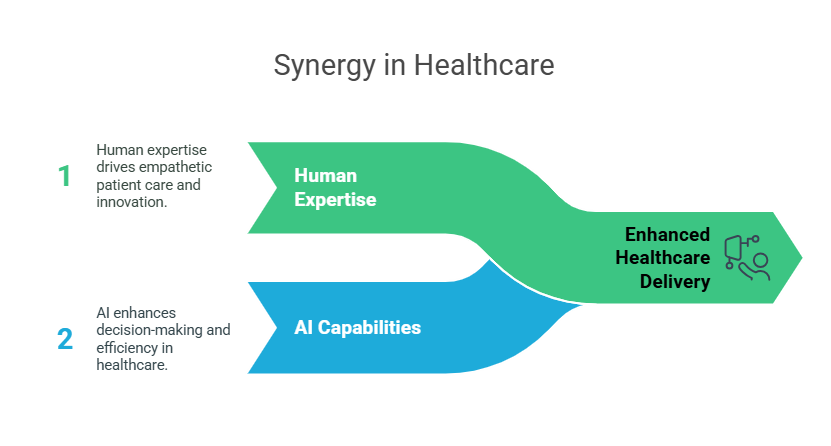
The future isn't about humans versus AI; it's about humans amplified by AI. It's a symbiotic partnership, a fusion of human wisdom and machine intelligence. It's about freeing healthcare professionals from the mundane, allowing them to focus on the profound: connecting with patients, solving complex problems and pushing the boundaries of medical innovation.
This isn't some distant future; it's happening now. The rise of genAI in healthcare is not a threat; it's the most significant opportunity in a generation. It's a chance to redefine expertise, to elevate the human element and to create a healthcare system that's not just more efficient, but more humane. Don't wait for permission. Don't cling to the old ways. The revolution is here. Join it.
My final thought? The human touch is more important than ever.
Generative AI is changing the landscape of healthcare expertise. It's not about replacing experts; it's about redefining expertise. The age of the information hoarder is over. The future belongs to those who can think critically, solve complex problems, innovate creatively, connect empathetically and act ethically. This is the new playbook for healthcare professionals and organizations.
Frequently Asked Questions
Will AI replace doctors?
Absolutely not. AI will empower doctors, freeing them from the data grind and allowing them to focus on what truly matters: the human connection, the complex cases, the ethical considerations.
How can I prepare for the impact of AI on my healthcare career?
Become a lifelong learner. Master the uniquely human skills — critical thinking, communication, creative problem-solving. And learn to wield AI as your most powerful tool.
What are the ethical concerns surrounding AI in healthcare?
We need to grapple with data privacy, algorithmic bias, transparency, accountability and the need to keep healthcare human.
How can AI improve patient care?
AI can give you accurate diagnoses, personalized treatments, greater efficiency, lower costs and wider access to care. It's about augmenting, not replacing, human care.
What is the biggest opportunity for genAI in healthcare?
GenAI is a chance to liberate healthcare professionals. To spend less time on routine tasks and more time connecting face-to-face with patients and improving quality.
Learn how you can join our contributor community.
